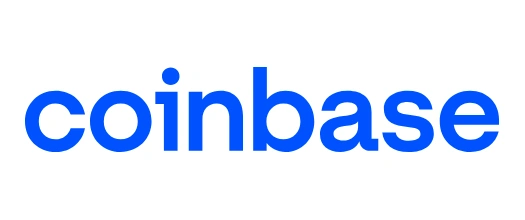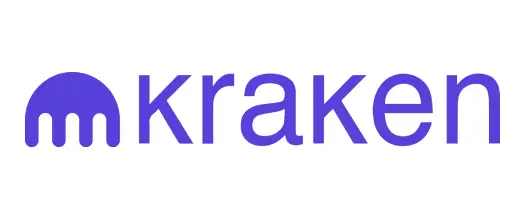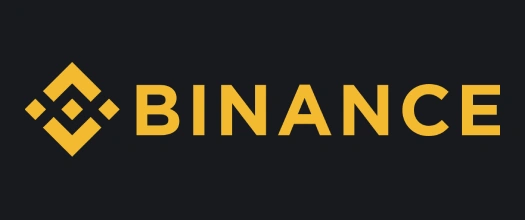Finding a reliable exchange with low spreads is crucial for UK traders looking to venture into the cryptocurrency market. Low-spread exchanges, or platforms where the difference between bid and ask prices is minimal, offer a cost-effective way to trade digital assets like Bitcoin and Ethereum.
As tight spreads reduce entry and exit costs, these exchanges are particularly well suited for high-frequency traders and long-term investors alike. In this publication, we explore the top crypto exchanges tailored to the UK’s regulatory landscape that feature low spreads, transparent cost structures, and robust security measures.
 Coinbase
Coinbase Uphold
Uphold Kraken
Kraken Binance
BinanceBelow, you can find more information about the best crypto exchange platforms with low spreads in the UK:
- Coinbase customers can benefit from lower pricing by increasing their trading volume and upgrading to the Advanced Trade level. Additionally, this gives them access to more crypto pairs—over 550, to be precise—and enables them to earn higher staking rewards on eligible balances.
- Uphold offers variable spreads that change based on asset class and market volatility, clearly disclosing all trading costs to its clients. Members of the exchange pay reasonable trading fees, ranging from 1.4% to 1.6% for Bitcoin and Ethereum, and from 2.50% to 2.95% for altcoins.
- Kraken features tight spreads for Bitcoin and Ethereum, and it also offers favourable conditions for trading over 350 altcoins. Maker/taker fees are also low, starting at 0.25%/0.40% and decreasing to 0.00%/0.08% for customers with substantial monthly trading volumes.
- Bitstamp attracts cryptocurrency enthusiasts with narrow spreads, resulting largely from its substantial liquidity and higher trading volumes, especially for popular assets like Ethereum and Bitcoin. The exchange also provides some of the industry’s lowest maker/taker fees, starting at 0.1000% for regular users.
What We Focus on in This Article:
- How spreads impact trading costs and profitability
- Other costs to watch out for, such as maker/taker, deposit, and withdrawal charges
- The criteria for selecting a secure, low-spread exchange
- FAQs addressing the unique needs of UK crypto traders
Bid-Ask Spread in Crypto Trading
The bid-ask spread is a key metric in crypto trading that reflects the difference between the highest (bid) price a buyer is willing to pay and the lowest (ask) price a seller is willing to accept. Crypto exchanges can offer fixed or floating spreads:
Cryptocurrency spreads are typically measured in dollars or other fiat currencies like the pound sterling. For example, the price of Bitcoin is quoted in US dollars for the BTC/USD pair, whereby spreads represent the dollar difference between the bid and ask prices. Price increments can differ significantly from one cryptocurrency to another, unlike Forex pairs, whose spreads are expressed in standardised units called pips (0.01 for JPY pairs and 0.0001 for most other pairs).
Using a quote currency like the dollar provides a more direct and easily understandable way to measure transaction costs in cryptocurrency trading, where price fluctuations are more pronounced and cannot be confined to small fixed increments like pips. Calculating the spread is straightforward and helps traders understand the cost of entering and exiting a trade. Here is a simple formula you can use to determine your crypto spread.
Ask Price − Bid Price = Spread
Example of How Crypto Spreads Work
- Market: BTC/GBP with price quotes derived from the Bitstamp exchange
- Bid Price: £59,964 (the highest price a buyer offers)
- Ask Price: £59,983 (the lowest price a seller accepts)
- Spread: £59,983 – £59,964 = £19
As you can see, the bid and ask prices Bitstamp quotes for this market account for a £19 spread. This means that if a person were to purchase and then immediately sell one Bitcoin, they would incur £19 in trading costs from the spread alone. Wider spreads translate to higher transaction costs and vice versa.
- Narrow Spread: A small difference from £5 to £30, for example, indicates high liquidity and results in lower trading costs.
- Wide Spread: A large difference of £100 or more suggests low liquidity and high volatility, increasing the overall cost of trade execution.
Why Do Spreads Matter?
- Trading Costs: The spread represents the immediate cost of executing a trade. A £19 spread means you start with a £19 loss if you buy and sell instantly.
- Liquidity Indicator: Tight spreads are common in high-volume markets like BTC/USD and BTC/GBP, while wide spreads occur in low-volume or volatile markets like PUMP/USD.
- Profitability: Lower spreads improve profit margins, especially for high-frequency traders.
Factors Affecting the Spread
- Market Liquidity: Highly liquid pairs like BTC/USD and BTC/GBP have tighter spreads.
- Volatility: Spreads increase significantly during news events or market turbulence.
- Exchange Policies: Reputable exchanges with deep liquidity pools tend to offer lower spreads.
Understanding how to calculate and interpret the bid-ask spread is essential for minimising your trading costs and maximising profitability. By choosing exchanges with narrow spreads and high liquidity, UK traders can optimise their crypto trading strategies.
Other Fees in Crypto Trading
In addition to spreads, crypto exchanges charge various fees that can impact your trading profits. The most common expenses are maker and taker fees, although some exchanges may charge additional fees for custody or for transactions completed via certain payment methods.
- Maker / Taker Fees: These fees apply when you execute trades on an exchange’s order book. Limit orders add liquidity to the market and often incur lower ‘maker’ fees. They are sometimes even eligible for rebates. Market orders remove liquidity as they are filled immediately and are subject to higher ‘taker’ fees. For example, an exchange might charge 0.1% for maker orders and 0.15% for taker orders.
- Gas Fees: When interacting with decentralised finance (DeFi) applications or transferring certain cryptocurrencies like Ethereum or Bitcoin on their native blockchains, crypto traders may encounter the so-called gas fees. These are network transaction charges paid to miners or validators to process and secure transactions. They fluctuate significantly based on network congestion.
- Fiat Conversion Fees: When you deposit or withdraw pounds sterling to or from your crypto exchange, you might be charged for currency conversion to cover the cost of processing. The fee percentage can vary between exchanges and the payment method used.
- Custody Fees: Exchanges catering to institutional clients or offering specialised custodial services for holding large amounts of cryptocurrency securely might charge custody fees. These are typically a percentage of the assets held on the platform over a specific period. Retail-focused exchanges often forgo charging custody fees, as the cost of securing assets is usually factored into their other charges.
- Inactivity Fees: Some exchanges levy a dormancy fee if your account remains inactive for a specified period without any trading activity or transactions. Always check the terms and conditions to avoid unexpected charges.
- Deposit and Withdrawal Fees: While many exchanges offer free GBP deposits via bank transfer, other methods like debit card deposits might attract surcharges. Similarly, pound-sterling withdrawals can sometimes incur a small charge depending on the exchange and the withdrawal method. Cryptocurrency deposits and withdrawals to external wallets also often involve network fees.
Additional Services Offered by Crypto Exchanges
Many crypto exchanges offer additional services to enhance users’ trading experience. Staking and copy trading are popular features that allow UK traders to earn passive income and replicate successful trading strategies.
Staking involves holding a certain amount of cryptocurrency in a wallet to support the network and earn rewards. Copy trading, on the other hand, enables traders to follow experienced investors and replicate their positions.
Aside from staking and copy trading, exchanges typically provide a wealth of educational resources, equipping traders with the necessary skills and knowledge to trade with confidence.
To summarise, these are some of the extra services you can encounter if you trade crypto at UK-friendly exchanges:
- Staking: Enables clients to earn passive income by holding coins like Cardano (ADA), Ethereum (ETH), or Polkadot (DOT). Annual yields vary across platforms and cryptocurrencies, so traders should check them in advance.
- Copy Trading: Platforms like Binance allow users to replicate the trades of experienced investors.
- Educational Resources: Webinars, tutorials, and market analysis tools help traders make informed decisions.
- Crypto Lending: You can lend out your cryptocurrencies to other exchange customers and earn interest on your holdings. Interest rates vary depending on the cryptocurrency, the platform, and market demand.
Forms of Crypto Trading
There are several forms of crypto trading, each with unique characteristics. You should weigh the advantages and disadvantages of each to determine which approach aligns with your goals, budget and risk tolerance. In addition, keep in mind that crypto derivatives like contracts for difference, futures and options cannot be offered to retail traders according to UK regulation.
- Spot Trading: This involves buying and selling real coins directly, with the goal of making a profit from price differences. Spot trading is suitable for investors who want to own the underlying asset and are willing to hold it for a longer period.
- Margin Trading: This type of trading allows you to borrow funds from the exchange to amplify your positions, potentially increasing your profits. This also increases the risk of suffering significant losses if the crypto markets move against you. Margin trading is only available to UK clients categorised as professionals and high-net-worth borrowers.
Crypto Regulatory Framework in the UK
UK crypto traders must select exchanges that adhere to local regulatory standards while implementing strong security measures to safeguard assets. The Financial Conduct Authority (FCA) oversees crypto businesses in the UK, enforcing strict anti-money laundering (AML) and counter-terrorist financing (CTF) rules. Since October 2020, all UK-based crypto exchanges must register with the FCA to operate legally in the country.
To make sure that you are trading at a safe and reputable exchange, you should take the following factors into consideration:
- Regulatory Compliance: Only use exchanges registered with the FCA, ensuring they meet UK AML/CTF requirements. Under the Money Laundering Regulations (MLR) 2019, locally registered exchanges must collect and share sender and receiver information for transactions over £1,000 (Travel Rule).
- Security Measures: Prioritise exchanges that store most user funds offline in cold wallets. Two-factor authentication is essential for account protection. We recommend you opt for exchanges supporting hardware keys or authenticator apps over SMS. FCA-compliant exchanges and custodians often offer insurance against theft or hacking.
- AML/KYC Requirements: Exchanges must verify the identities of onboarding customers via photo ID, proof of address and sometimes live video calls. Enhanced due diligence applies to high-risk or large transactions.
- Transparency and Accountability: Reputable exchanges undergo independent proof-of-reserve audits to confirm solvency. They have clear fee structures without any hidden costs.
How Can UK Traders Spot Low-Cost Crypto Exchanges?
When choosing a crypto exchange with low spreads, UK traders must consider the following key aspects:
- Spreads and maker/taker fees: Look for exchanges that offer competitive spreads and low maker/taker fees to minimise trading costs.
- Minimum account requirements: Check if the exchange has minimum deposit or balance requirements.
- Range of tradable coins: Consider the selection of cryptocurrencies offered by the exchange and whether they meet your trading needs.
- Wallet service: Look for exchanges that offer a user-friendly wallet service, including secure cold storage and easy withdrawal options.
- Regulation: Ensure the exchange is registered with the Financial Conduct Authority (FCA) and complies with local AML and KYC regulations.
- Liquidity: Check the exchange’s liquidity to ensure that you can buy and sell cryptocurrencies quickly and at a fair price.
- Demo accounts: Look for exchanges that offer demo accounts for paper trading and to test their platform in a risk-free environment.
- Educational materials: Consider exchanges that offer resources like tutorials, webinars and market analysis to help you expand your knowledge of the crypto markets.
- User-friendly layout: Choose an exchange whose user interface is intuitive and easy to use.
- Customer support: Look for exchanges with good customer support, including multiple communication channels and a responsive support team.
- Reputation: Examine feedback from existing users to ensure that a given exchange is reliable and trustworthy.
FAQs
Is it possible to try out a crypto exchange without committing to a trade?
Yes, many crypto exchanges offer free demo accounts or trial periods, allowing you to test their platform and features without the use of real funds.
What charges can I expect to pay when using a crypto exchange?
Crypto exchanges typically charge a range of fees, including maker and taker fees, the difference between the buy and sell prices (spreads), charges for depositing and withdrawing funds, and fees for managing your account.
Why is it important to choose a crypto exchange with low fees?
Low fees can save you a significant amount of money in the long run, especially if you trade frequently or in large volumes. Exchanges with low fees are particularly beneficial for traders who use certain strategies, such as scalping, or who buy and sell cryptocurrencies regularly.
How do I know if a crypto exchange is secure and trustworthy?
To ensure a crypto exchange is secure and trustworthy, look for platforms registered with the Financial Conduct Authority (FCA) of the UK. Additionally, check for exchanges with a solid reputation that implement robust security measures such as two-factor authentication and cold storage. Having access to transparent and responsive customer support should also be a priority.
Can I use a crypto exchange on my mobile device?
Yes, many crypto exchanges offer mobile apps or mobile-friendly websites that allow you to trade cryptocurrencies on your smartphone or tablet. These mobile platforms often provide the same features and functionality as the desktop version, allowing you to trade, monitor your accounts and access your funds from anywhere.
Conclusion
For UK traders, selecting a low-spread crypto exchange involves balancing cost, security and regulatory compliance. By prioritising transparent fee structures, diverse coin offerings and strong security protocols, traders can optimise profitability while minimising risks.